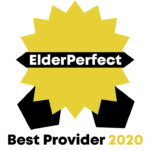Philosophy of the Program
The core philosophy of The Rizor Institute recognizes the complex interactions between pathophysiological, emotional, social, perceptual, cultural, and situational components of chronic pain and chronic pain syndromes. In the treatment of chronic pain, we believe that pain exists when and as the individual describes it. The goals of these programs are to reduce participants’ perceptions of pain, increase their level of independent functioning, promote increased activity levels, enhance wellness behaviors, reduce emotional distress associated with chronic pain, and eliminate reliance on opioid analgesics and/or muscle relaxants for pain relief.
Participants are encouraged to assume responsibility for their pain and its management through psychological and physical rehabilitation approaches.
Program Description
The Rizor Institute is a therapeutic pain program that seeks to integrate the medical, psychological, emotional, social, and spiritual needs of the patient into the treatment program. The Inpatient Program lasts an average of 4 to 6 weeks. This includes 24-hour, seven days per week care which allows for the most intensive treatment for the patient. The Outpatient Program lasts an average of 8 to 10 weeks. This treatment approach is only given during the day, five days per week and will require a longer admittance to the program. The program provided to the outpatients is integrated with the inpatient program.
The Inpatient and Outpatient Programs will be capable of treating a wide range of medical diagnoses. All patients will be evaluated by each clinical discipline and an individual treatment plan will be developed by the team.
Level of Care
The levels of care The Rizor Institute offers includes Inpatient & Outpatient Interdisciplinary Pain Management
Program Goals
The primary goal of The Rizor Institute is to restore functioning and improve quality of life for persons suffering with chronic pain. The program emphasizes the discontinuation of opioids for the treatment of chronic benign pain and the return to a fulfilling lifestyle. Other important goals include:
- Return to regular daily activities
- Increase physical strength, stamina, and flexibility
- Reduce/eliminate use of pain medications
- Minimize pain behaviors
- Learn stress management techniques
- Improve the patients’ ability to self-manage and regulate pain flare-ups without the use of controlled medications
- Return to gainful employment (if applicable)
- Resume leisure and recreational activities
- Improve interpersonal relationships
- Reduce reliance on healthcare professionals, with improved ability to self-manage chronic pain
Treatment or Service Modalities
Treatment modalities are selected based on clinical assessment and are recommended by providers who have credentials and training needed to use evidence-based modalities. This will be a comprehensive program that includes a medical director, nurse, psychologist/program director, physical therapist, and occupational therapist. These programs require that all services be given to the patients in the same setting. This allows patients to be treated both comprehensively and based on their individual needs.
Population Served
The Rizor Institute accepts adult patients from a physician referral only. A thorough initial assessment will also be performed to determine acceptance into the programs.
The following are the chronic pain treatment inclusion/exclusion criteria:
Inclusion:
- If a surgical procedure or acute medical treatment is indicated, it has been performed prior to entry into the pain program; and
- Patient has experienced chronic non-malignant pain (not cancer pain) for 3 months or more; and
- Patient has failed conventional methods of treatment; and
- Patient has undergone a mental health evaluation, and any primary psychiatric conditions have been treated, where indicated; and
- Patient's work or lifestyle has been significantly impaired due to chronic pain; and
- Referral for entry has been made by the primary care physician/attending physician; and
- The cause of the patient's pain is unknown or attributable to a physical cause, i.e. not purely psychogenic in origin.
- Patients with SCI injuries at level C-7 and below. Co-morbidities will be evaluated on an individual basis.
- Patients who can actively patriciate on all aspects of the program including conversing with peers.
Exclusion:
- Patient exhibits aggressive and/or violent behavior; or
- Patient exhibits imminently suicidal tendencies; or
- Patient has previously failed an adequate multi-disciplinary (e.g., Commission on Accreditation of Rehabilitation Facilities (CARF) accredited) chronic pain management program; or
- Patient has unrealistic expectations of what can be accomplished from the program (i.e., patient expects an immediate cure); or
- Patient is medically unstable (e.g., due to uncontrollable high blood pressure, unstable congestive heart failure, ventilator dependent, or other medical conditions);
- Patient does not have a primary diagnosis of drug addiction; or
- Patient is unable to understand and carry out instructions.
- Patient is unable to communicate with peers and others in group setting.
- Patients with other conditions will be evaluated and considered on a case-by-case basis.
Credentials of Those Providing Care
The program is serviced by a multi-disciplinary team including licensed physicians, nurses, psychologists, therapists/interns, and direct caregivers. Our staff are all salaried, hourly employees, or contractors.
Settings
The Rizor Institute’s Inpatient and Outpatient Interdisciplinary Pain Management Program is offered in one skilled nursing setting. The Outpatient Program will be provided both in person and virtually.
Hours of Service
Our hours of operations are 24 hours days, 7 days a week for the Inpatient Program. The Outpatient Program will be 5 days per week from 9am to 5pm.
Geographic Area Served
The Rizor Institute provides services to individuals in metropolitan Atlanta and Gwinnett County, Georgia, but the scope of its services are not limited to that geographical area. The Inpatient Program allows for the program to accept patients from referral sources worldwide. Telehealth services may be geographically limited as provider licenses allow.
Communication Technology Used to Deliver Serviced
The Rizor Institute uses video conferencing and other platforms to provide outpatient services to patients in the Outpatient Program who will be participating virtually.
Payors, Fees and Funding Source
Payors will include private Insurance providers, worker’s compensation, and self-pay.
Referral Sources
Referrals can come from patients, payors, physicians, and other sources. An order from a physician will be requested.
*Physician coverage is provided 24/7 by the The Rizor Institute’s physicians, and other licensed medical affiliates as needed.




